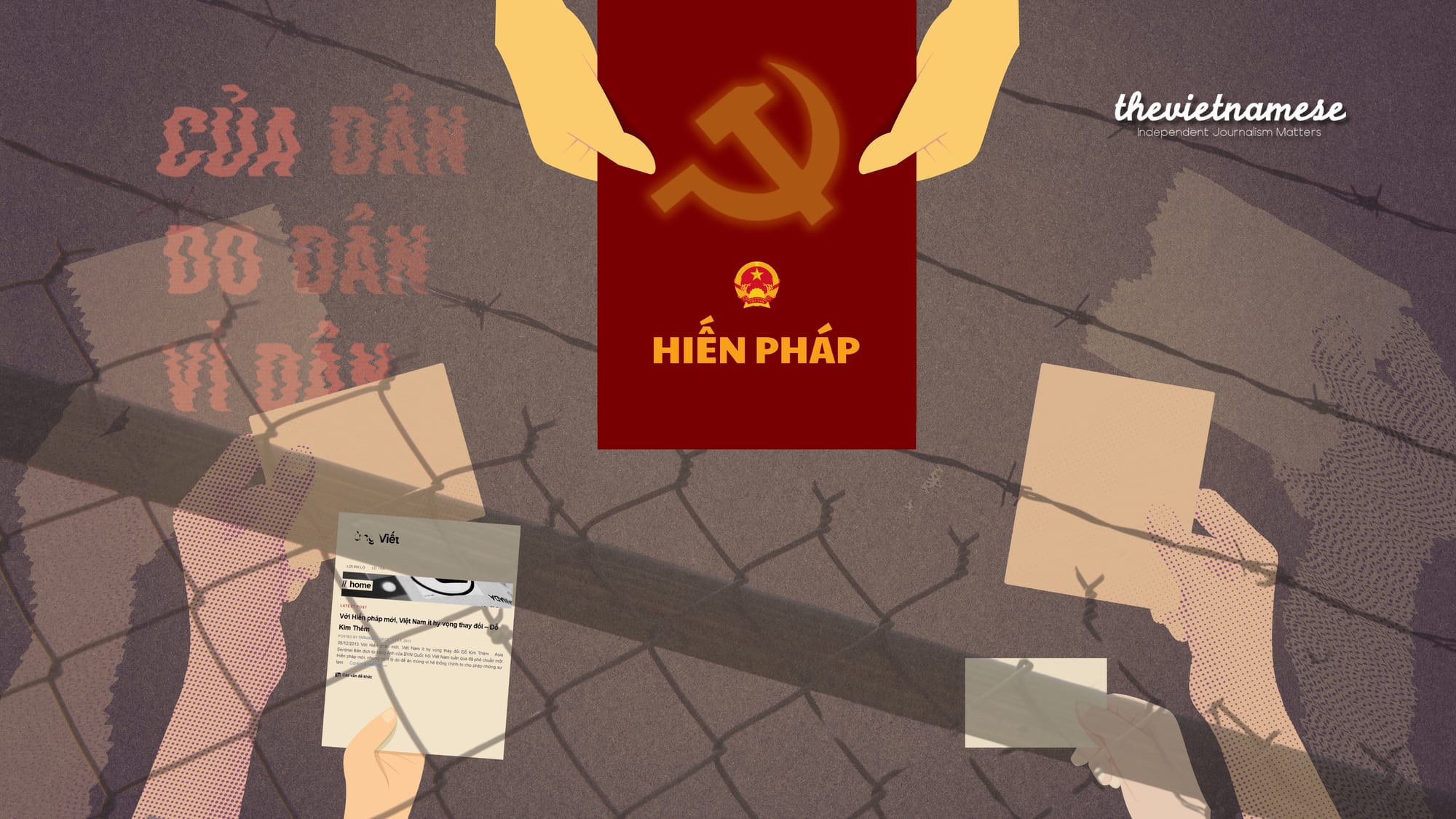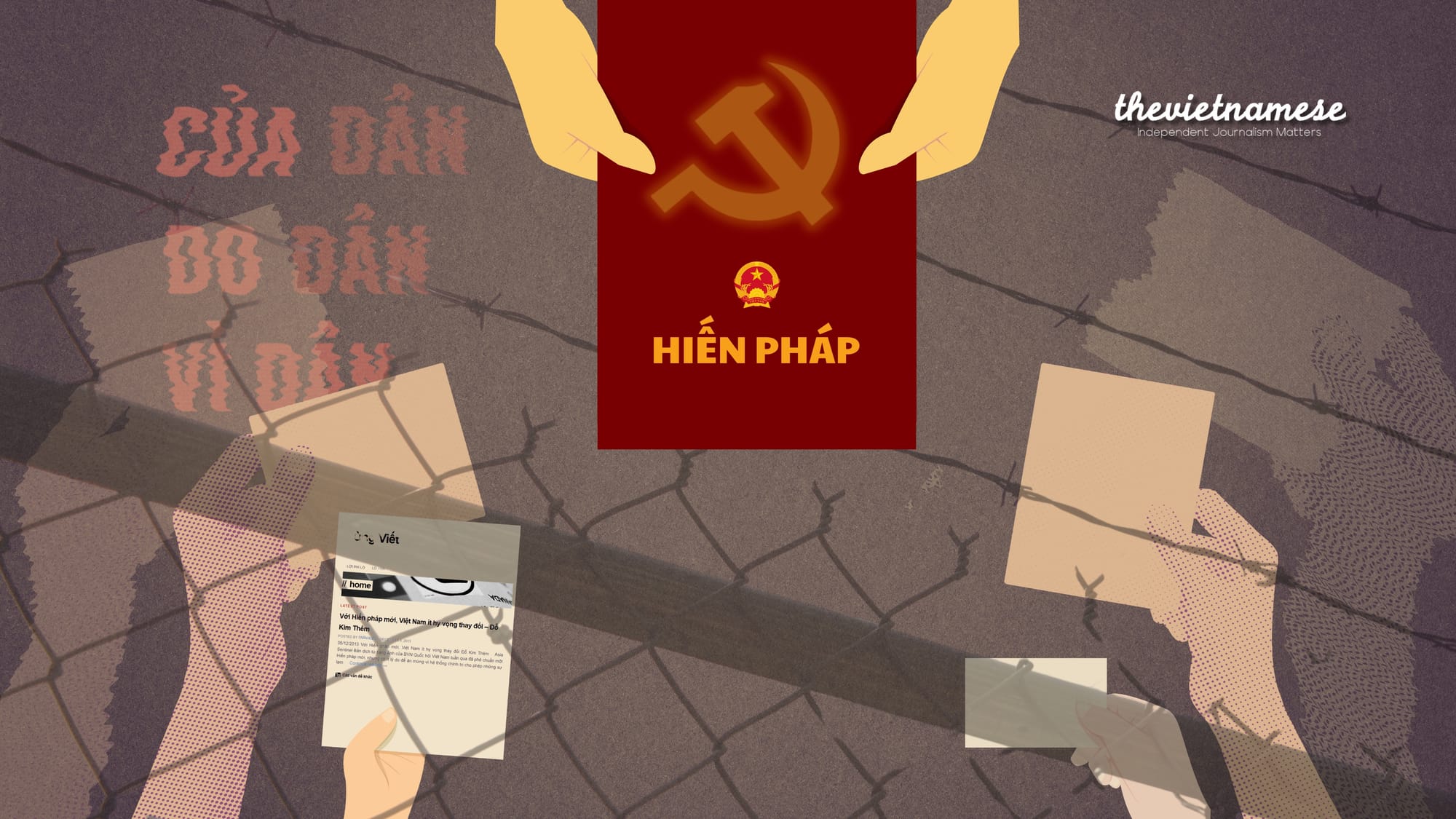
Bảo Khánh wrote this Vietnamese article, published in Luật Khoa Magazine on May 23, 2025.
On Feb. 19, 2025, Việt Nam’s National Assembly passed the amended Law on the Promulgation of Legal Normative Documents (LNDs), officially taking effect on April 1.
The bill was praised as a breakthrough for Việt Nam’s legal system during its drafting phase. However, a closer examination reveals that not every “breakthrough” is necessarily beneficial or effective.
Below are three alarming “breakthroughs” in the 2025 law that increase the risk of the public being blindsided by legislation.
1. Public Consultation Time Slashed
In 2018, the power of public feedback was on full display when thousands of people across Việt Nam and abroad took to the streets to protest two controversial bills: the Special Administrative-Economic Zones bill (the “Special Zone Law”) and the Cybersecurity Law.
Before the protests, both draft laws had been published on government websites for public comment. The Cybersecurity Law was posted for two months beginning June 8, 2017, and the Special Zone bill was made public on Oct. 16, 2017. This sustained public outcry ultimately led the National Assembly to delay the passage of the Special Zone bill.
The previous version of the Law on Promulgation of Legal Normative Documents (LNDs) required that, under standard procedures, draft legislation be posted for at least 60 days for public feedback. For expedited procedures, this period was no more than 20 days.
The 2025 version of the law has drastically cut these timelines. According to Article 33, the minimum public consultation period for standard procedures is now just 20 days. For expedited procedures, it has been slashed to only three days. Furthermore, the public may not be consulted in certain special cases defined under Article 52.
The drafting agency justified these changes to save time and respond more promptly to real-world needs. However, these shortened timelines were flagged as problematic even during the drafting phase.
At a Jan. 17, 2025 workshop organized by the Democracy and Law Journal—a publication of the Ministry of Justice—Phan Hồng Thủy, Deputy Director of the Legal Department at the Committee for Ethnic Minority Affairs, remarked that even the initially proposed “10 days under the standard procedure and 7 days under expedited procedure do not ensure democracy, as citizens may not have time to read and understand the draft before the consultation period ends.”
Nevertheless, the final law retained the even shorter consultation periods, raising a serious question: can the public truly study a draft law and respond in writing within just three days?
2. A New Principle: Ensuring Party Leadership
While the Communist Party’s dominance over the legislative process in Việt Nam is not new in practice, the 2025 law marks a significant formal shift. For the first time, the principle of “ensuring the comprehensive and direct leadership of the Communist Party of Việt Nam” has been codified at the very top of the Law on the Promulgation of Legal Normative Documents, signaling it as its foremost guiding principle.
The new law operationalizes this principle through several key articles that underscore the Party’s decisive role. Article 23 stipulates that the entire legislative orientation for each National Assembly term must first be submitted for the Party’s approval. Furthermore, Party directives and policies are officially designated as the primary basis for shaping this agenda. To enforce this, every draft law file submitted for review must now include a report detailing its alignment with relevant Party policies.
With these changes, the Party has formally taken charge of the entire legislative process from start to finish, effectively placing itself above the National Assembly.
3. A vague “Special Procedure” for promulgating legal documents
A new and alarming feature in the 2025 revision is introducing a “special procedure” for drafting and issuing LNDs.
Article 52 of the law grants the National Assembly, its Standing Committee, the President, and the Government the power to enact legal documents under this special procedure in a handful of specific cases. These include:
- With approval from a competent Party authority.
- In emergencies as defined by the law on states of emergency.
- In cases of accidents or disasters as defined by civil defense law.
- In force majeure events or other urgent and critical national issues.
Notably, the law’s drafters failed to explain why this new procedure is necessary, nor did they clarify how it substantially differs from the existing expedited procedures.
Such vague language opens the door to arbitrary application, which could ultimately harm public interest.
***
These changes in the 2025 Law on Promulgation of LNDs—the slashed consultation times, the codification of Party dominance, and the vague “special procedure”—all further eroded the already limited voice of citizens in the legislative process. While this marginalization has been a persistent reality for years, enacting this law formalizes it, pushing the public further to the sidelines of the nation’s most consequential decisions.

